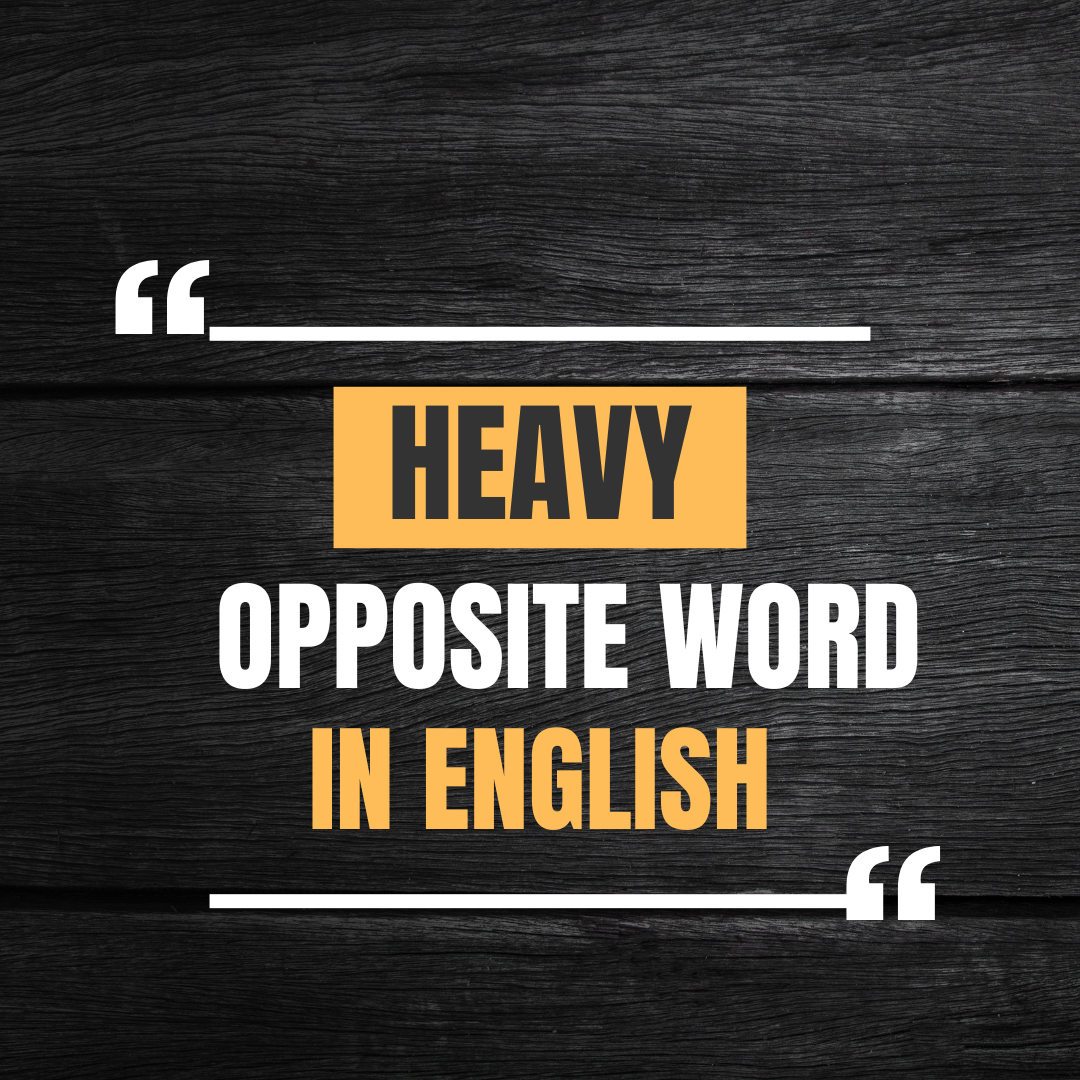Understanding “Heavy” and Its Opposite
The English language is rich and diverse, offering numerous ways to describe the weight or density of objects. One such commonly used word is “heavy.” In this article, we will delve into the meaning of “heavy,” explore its synonyms and antonyms, and provide its opposite in Hindi.
Explore our best English speaking course online in India.
Defining “Heavy”
The term “heavy” is an adjective used to describe an object that has a lot of weight or mass. It can also refer to something that is physically demanding to lift or move due to its weight. Additionally, “heavy” can be used metaphorically to describe situations or feelings that are intense or burdensome.
- Literal Use: “The box is too heavy for me to carry alone.”
- Metaphorical Use: “She felt a heavy sense of responsibility.”
In both cases, the word conveys a sense of substantial weight or burden.
Opposite of Heavy/ Heavy Opposite Word in English
The opposite of “heavy” is “light.” This term is used to describe objects with little weight or mass, making them easy to lift or move. Just like “heavy,” “light” can also be used metaphorically to describe situations or feelings that are not burdensome or are easy to manage.
- Literal Use: “This feather is very light.”
- Metaphorical Use: “He felt light-hearted after hearing the good news.”
In these examples, “light” serves as the direct opposite of “heavy,” providing a clear contrast in both physical and metaphorical contexts.
Heavy Synonym
Synonyms for “heavy” include words that convey similar meanings of substantial weight or mass. Here are a few examples:
- Weighty: Emphasizing substantial weight.
- “The weighty book was difficult to hold for long periods.”
- Hefty: Implies a considerable amount of weight.
- “He gave a hefty donation to the charity.”
- Bulky: Refers to something large and unwieldy.
- “The bulky package was hard to fit through the door.”
- Massive: Describes something very large and heavy.
- “The massive boulder blocked the path.”
These synonyms help to provide variety in expression while maintaining the core idea of substantial weight.
Heavy Antonym
As mentioned earlier, the primary antonym for “heavy” is “light.” However, there are other antonyms that convey a lack of weight or a sense of ease:
- Lightweight: Specifically refers to something that is not heavy.
- “The lightweight jacket was perfect for summer evenings.”
- Featherweight: Used to describe something extremely light.
- “The featherweight material made the dress feel almost weightless.”
- Airy: Conveys a sense of lightness and spaciousness.
- “The airy room felt refreshing and uncluttered.”
These antonyms provide a range of options to describe the opposite of “heavy” in different contexts.
Heavy Opposite Word in Hindi
In Hindi, the word for “heavy” is “भारी” (bhaari). The opposite of “heavy” in Hindi is “हल्का” (halkaa), which means light.
- भारी (bhaari): Heavy
- “यह बक्सा बहुत भारी है।” (Yeh baksa bahut bhaari hai.) – “This box is very heavy.”
- हल्का (halkaa): Light
- “यह पंख बहुत हल्का है।” (Yeh pankh bahut halkaa hai.) – “This feather is very light.”
Understanding these terms in both English and Hindi helps in appreciating the nuances of weight and mass in different languages.
Conclusion – Heavy Opposite Word
The word “heavy” is a versatile adjective used to describe substantial weight or burden, both literally and metaphorically. Its opposite, “light,” conveys the idea of minimal weight or ease. Exploring synonyms and antonyms for “heavy” enriches our vocabulary, allowing for more precise and varied expression. Additionally, understanding the equivalent terms in Hindi— “भारी” (bhaari) and “हल्का” (halkaa)—broadens our linguistic knowledge and cultural appreciation. Whether describing physical objects or abstract feelings, the concepts of “heavy” and “light” are fundamental to effective communication.
